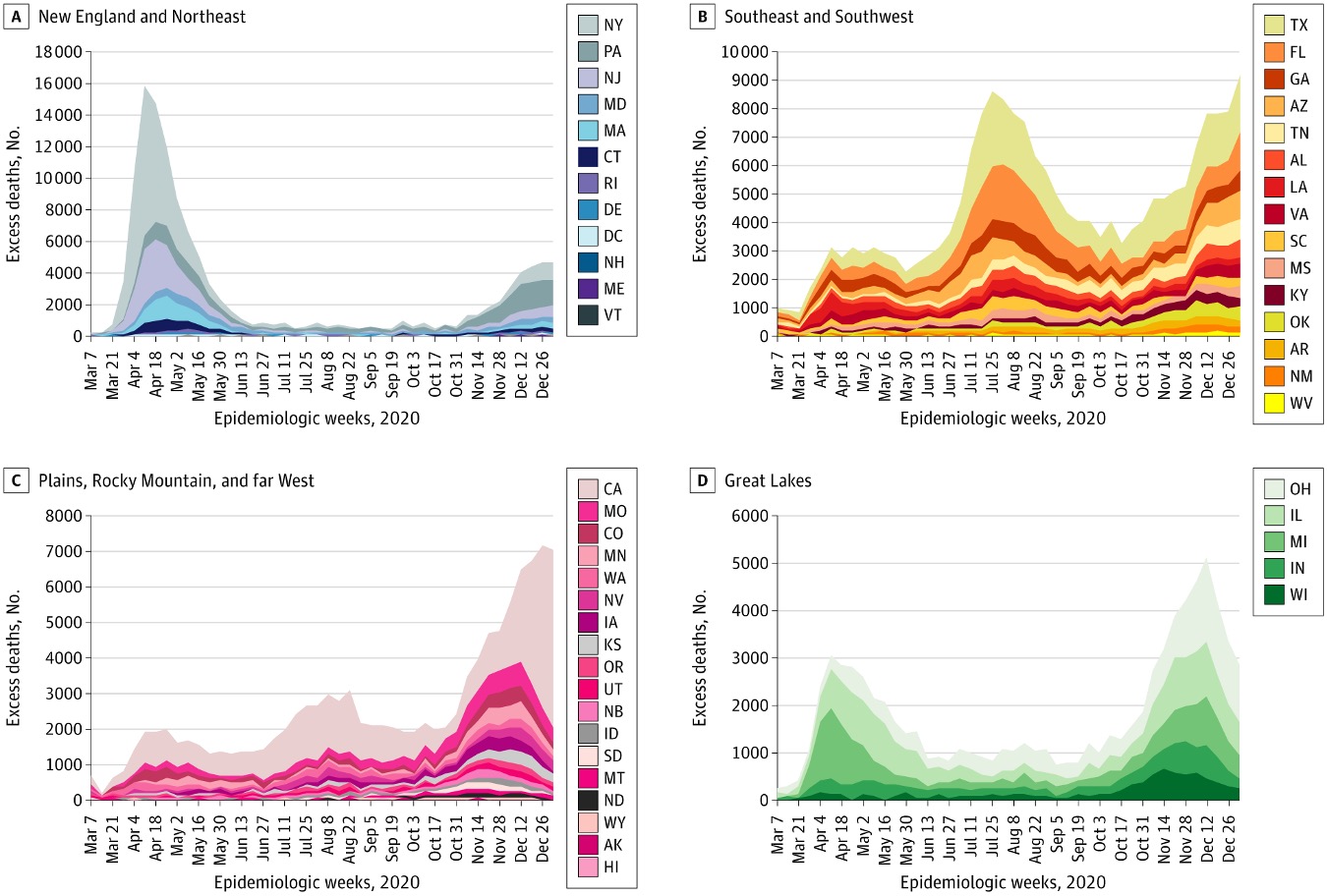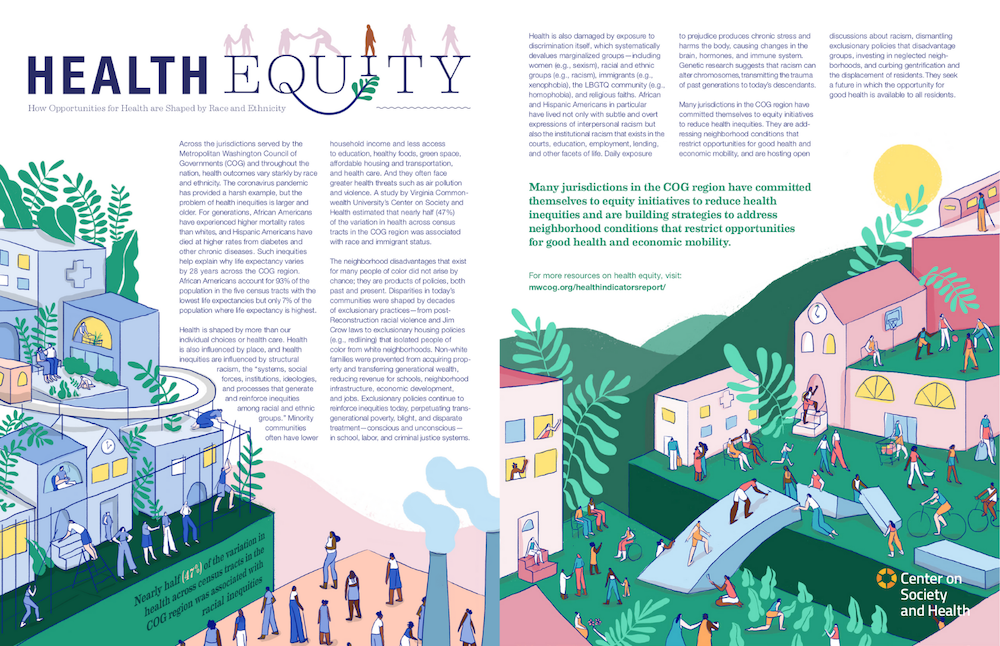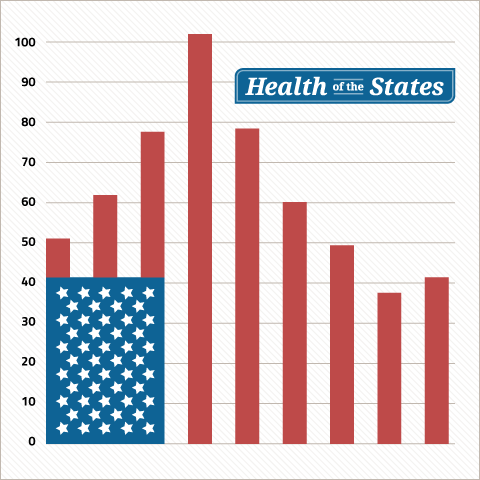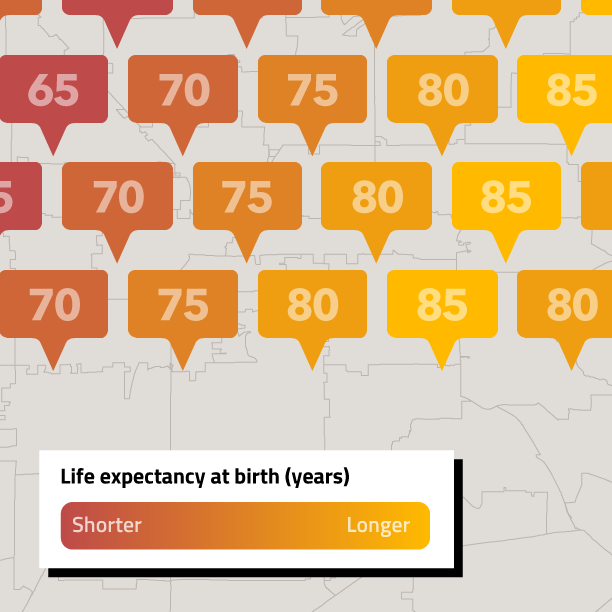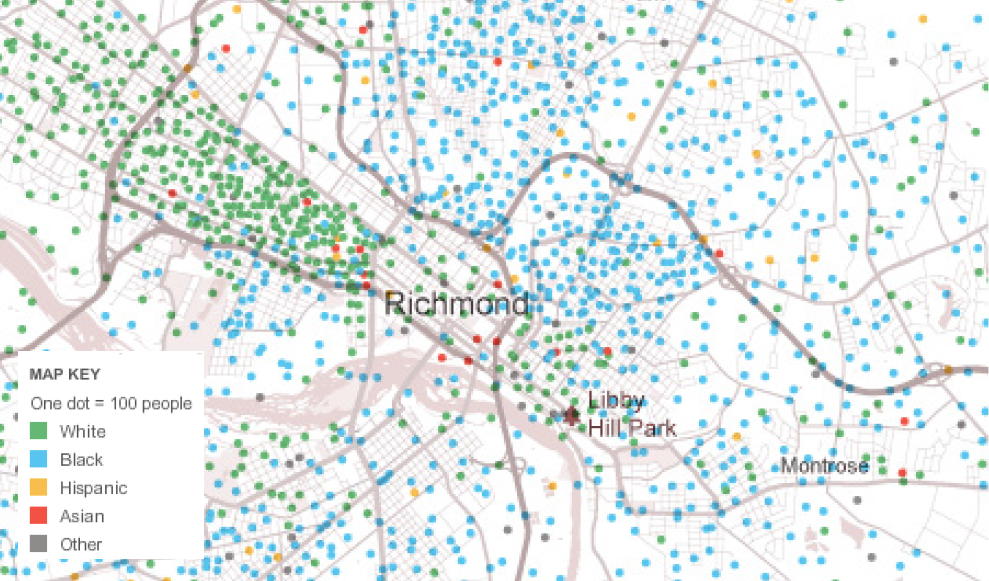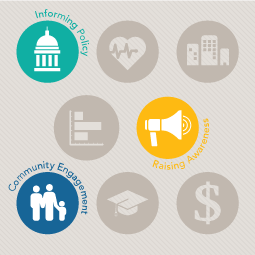Center Study Examines Excess Deaths from COVID and Other Causes
The number of deaths from COVID-19 reported in the news during since March may be underestimating the pandemic's actual death toll. From March 1st, 2020 to January 2nd, 2021, the United States saw 522,368 excess deaths, but only 72% of those were attributed to COVID-19. The other 28% were linked to other causes such as heart disease, diabetes, and Alzheimer's disease.
Read More
